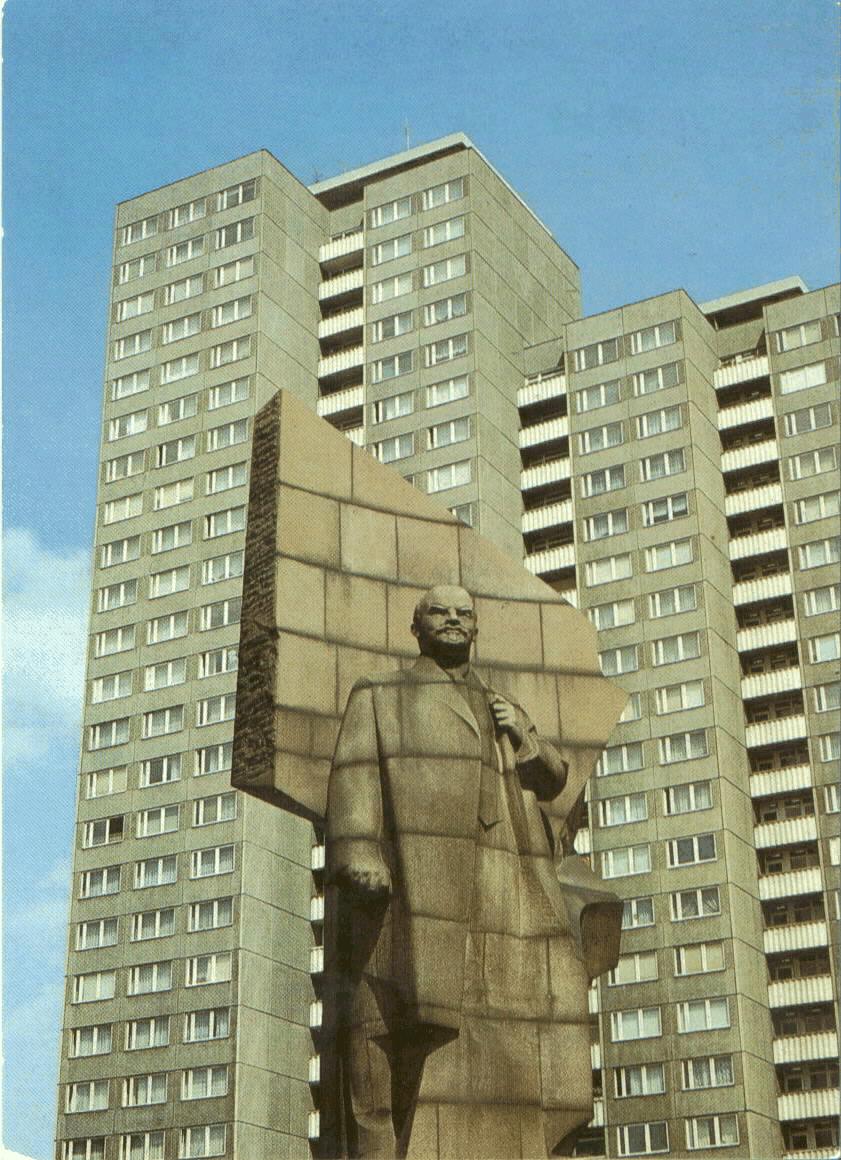|
Values (heritage)
The values embodied in cultural heritage are identified in order to assess significance, prioritize resources, and inform conservation decision-making. It is recognised that values may compete and change over time, and that heritage may have different meanings for different stakeholders. Origins Alois Riegl is credited with developing Ruskin's concept of 'voicefulness' into a systematic categorization of the different values of a monument. In his 1908 essay ''Der moderne Denkmalkultus'' (The modern cult of monuments) he describes historical value, artistic value, age value, commemorative value, use value, and newness value. Riegl demonstrates that some of these values conflict and argues that they may be culturally contingent. Charters and Conventions The UNESCO World Heritage Convention addresses cultural sites of outstanding universal value, from a historical, aesthetic, scientific, ethnological or anthropological perspective, and highlights the need for authenticity. Discuss ... [...More Info...] [...Related Items...] OR: [Wikipedia] [Google] [Baidu] |
Venice Charter
''The Venice Charter for the Conservation and Restoration of Monuments and Sites'' is a set of guidelines, drawn up in 1964 by a group of conservation professionals in Venice, that provides an international framework for the conservation and restoration of historic buildings. However, the document is now seen as outdated, representing Modernist views opposed to reconstruction. Reconstruction is now cautiously accepted by UNESCO in exceptional circumstances if it seeks to reflect a pattern of use or cultural practice that sustains cultural value, and is based on complete documentation without reliance on conjecture. The change in attitude can be marked by the reconstruction in 2015 of the Sufi mausoleums at the Timbuktu World Heritage Site in Mali after their destruction in 2012. Historic background Athens Charter The development of new conservation and restoration techniques have threatened the historic buildings in a general sense. In 1931, the International Museum Office organiz ... [...More Info...] [...Related Items...] OR: [Wikipedia] [Google] [Baidu] |
Intrinsic Value (ethics)
In ethics, intrinsic value is a property of anything that is valuable on its own. Intrinsic value is in contrast to instrumental value (also known as extrinsic value), which is a property of anything that derives its value from a relation to another intrinsically valuable thing. Intrinsic value is always something that an object has "in itself" or "for its own sake", and is an intrinsic property. An object with intrinsic value may be regarded as an end, or in Kantian terminology, as an end-in-itself. The term "intrinsic value" is used in axiology, a branch of philosophy that studies value (including both ethics and aesthetics). All major normative ethical theories identify something as being intrinsically valuable. For instance, for a virtue ethicist, eudaimonia (human flourishing, sometimes translated as "happiness") has intrinsic value, whereas things that bring you happiness (such as having a family) may be merely instrumentally valuable. Similarly, consequentialists may i ... [...More Info...] [...Related Items...] OR: [Wikipedia] [Google] [Baidu] |
Value Pluralism
In ethics, value pluralism (also known as ethical pluralism or moral pluralism) is the idea that there are several values which may be equally correct and fundamental, and yet in conflict with each other. In addition, value-pluralism postulates that in many cases, such incompatible values may be incommensurable, in the sense that there is no objective ordering of them in terms of importance. Value pluralism is opposed to ''value monism''. Value-pluralism is a theory in metaethics, rather than a theory of normative ethics, or a set of values in itself. Oxford philosopher and historian of ideas Isaiah Berlin is credited with being the first to popularize a substantial work describing the theory of objective value-pluralism, bringing it to the attention of academia (cf. the Isaiah Berlin Virtual Library). The related idea that fundamental values can and, in some cases, do conflict with each other is prominent in the thought of Max Weber, captured in his notion of "polytheism". Cont ... [...More Info...] [...Related Items...] OR: [Wikipedia] [Google] [Baidu] |
Cultural Heritage Management
Cultural heritage management (CHM) is the vocation and practice of managing cultural heritage. It is a branch of cultural resources management (CRM), although it also draws on the practices of cultural conservation, restoration, museology, archaeology, history and architecture. While the term cultural heritage is generally used in Europe, in the USA the term cultural resources is in more general use specifically referring to cultural ''heritage'' resources. CHM has traditionally been concerned with the identification, interpretation, maintenance, and preservation of significant cultural sites and physical heritage assets, although intangible aspects of heritage, such as traditional skills, cultures and languages are also considered. The subject typically receives most attention, and resources, in the face of threat, where the focus is often upon rescue or salvage archaeology. Possible threats include urban development, large-scale agriculture, mining activity, looting, erosion o ... [...More Info...] [...Related Items...] OR: [Wikipedia] [Google] [Baidu] |
World Heritage Site
A World Heritage Site is a landmark or area with legal protection by an international convention administered by the United Nations Educational, Scientific and Cultural Organization (UNESCO). World Heritage Sites are designated by UNESCO for having cultural, historical, scientific or other form of significance. The sites are judged to contain " cultural and natural heritage around the world considered to be of outstanding value to humanity". To be selected, a World Heritage Site must be a somehow unique landmark which is geographically and historically identifiable and has special cultural or physical significance. For example, World Heritage Sites might be ancient ruins or historical structures, buildings, cities, deserts, forests, islands, lakes, monuments, mountains, or wilderness areas. A World Heritage Site may signify a remarkable accomplishment of humanity, and serve as evidence of our intellectual history on the planet, or it might be a place of great natural beauty. A ... [...More Info...] [...Related Items...] OR: [Wikipedia] [Google] [Baidu] |
English Heritage
English Heritage (officially the English Heritage Trust) is a charity that manages over 400 historic monuments, buildings and places. These include prehistoric sites, medieval castles, Roman forts and country houses. The charity states that it uses these properties to "bring the story of England to life for over 10 million people each year". Within its portfolio are Stonehenge, Dover Castle, Tintagel Castle and the best preserved parts of Hadrian's Wall. English Heritage also manages the London Blue Plaque scheme, which links influential historical figures to particular buildings. When originally formed in 1983, English Heritage was the operating name of an executive non-departmental public body of the British Government, officially titled the Historic Buildings and Monuments Commission for England, that ran the national system of heritage protection and managed a range of historic properties. It was created to combine the roles of existing bodies that had emerged from a long ... [...More Info...] [...Related Items...] OR: [Wikipedia] [Google] [Baidu] |
Human Sciences Research Council (South Africa)
The Human Sciences Research Council (HSRC) of South Africa is Africa's largest dedicated social science and humanities research agency and policy think tank. It primarily conducts large-scale, policy-relevant, social-scientific projects for public-sector users, for non governmental organisations and international development agencies in support of development nationally, in the Southern African Development Community (SADC) and in Africa. The HSRC also seeks to contribute to the research and development strategy of the HSRC's parent Department of Science and Technology, especially through its mission to focus on the contribution of science and technology to addressing poverty. The HSRC originates in the National Bureau of Education and Social Research (founded in 1929). In recent years the HSRC has undergone major restructuring, aligning its research activities and structures to South Africa's national development priorities: notably poverty reduction through economic deve ... [...More Info...] [...Related Items...] OR: [Wikipedia] [Google] [Baidu] |
Significance Assessment , part of a number in floating-point representation
{{disambiguation ...
Significance is a synonym for importance. It can also refer to: * ''Significance'' (magazine), a magazine published by the Royal Statistical Society and the American Statistical Association * Significance (policy debate), a stock issue in policy debate * Significant figures or significant digits, the precision of a numerical value * Statistical significance, the extent to which a result is unlikely to be due to chance alone See also * Meaning (other) * Significand The significand (also mantissa or coefficient, sometimes also argument, or ambiguously fraction or characteristic) is part of a number in scientific notation or in floating-point representation, consisting of its significant digits. Depending on ... [...More Info...] [...Related Items...] OR: [Wikipedia] [Google] [Baidu] |
Blackwell Publishing
Wiley-Blackwell is an international scientific, technical, medical, and scholarly publishing business of John Wiley & Sons. It was formed by the merger of John Wiley & Sons Global Scientific, Technical, and Medical business with Blackwell Publishing in 2007.About Wiley-Blackwell John Wiley & Sons, Inc. Wiley-Blackwell is now an imprint that publishes a diverse range of academic and professional fields, including , , , |
ICOMOS
The International Council on Monuments and Sites (ICOMOS; french: links=no, Conseil international des monuments et des sites) is a professional association that works for the conservation and protection of cultural heritage places around the world. Now headquartered in Charenton-le-Pont, France, ICOMOS was founded in 1965 in Warsaw as a result of the Venice Charter of 1964, and offers advice to UNESCO on World Heritage Sites. The idea behind ICOMOS dates to the Athens Conference on the restoration of historic buildings in 1931, organized by the International Museums Office. The Athens Charter of 1931 introduced the concept of international heritage. In 1964, the Second Congress of Architects and Specialists of Historic Buildings, meeting in Venice, adopted 13 resolutions. The first created the International Charter on the Conservation and Restoration of Monuments and Sites, better known as Venice Charter; the second, put forward by UNESCO, created ICOMOS to carry out this charter ... [...More Info...] [...Related Items...] OR: [Wikipedia] [Google] [Baidu] |
Australia ICOMOS
Australia ICOMOS is a peak cultural heritage conservation body in Australia. It is a branch of the United Nations-sponsored International Council on Monuments and Sites (ICOMOS), a non-government professional organisation promoting expertise in the conservation of place-based cultural heritage.Susan Thompson''Planning Australia: An Overview of Urban and Regional Planning''(Cambridge University Press, 2007) Its secretariat is based at the Cultural Heritage Centre for Asia and the Pacific at Deakin University. Formation and role Australia ICOMOS was formed in 1976 and is one of over 100 current ICOMOS national committees. ICOMOS was formed in Paris in 1965, following acceptance of Venice Charter 1964, which itself grew out of Athens Charter 1933, led by modernist architect Le Corbusier in regard to urban planning. ICOMOS soon became one of three UNESCO advisors on the assessment of sites proposed for the World Heritage List, along with the International Union for the Conservation ... [...More Info...] [...Related Items...] OR: [Wikipedia] [Google] [Baidu] |


.jpg)